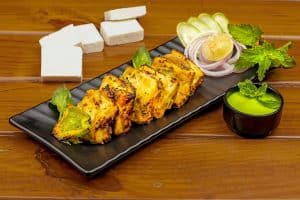Cooking Competition Mental Health: Psychological Support for High-Stress Culinary Events
Cooking competitions can be intense, high-stress events that push chefs to their limits both physically and mentally. While these competitions can help chefs showcase their skills and gain recognition, the pressure to perform can have negative consequences on their mental health. In recent years, there has been a growing awareness of mental health in the culinary industry, and the need for psychological support in high-stress culinary events has become more apparent. In this article, we will explore the impact of cooking competitions on mental health and the importance of providing psychological support to chefs in these high-stress environments.
The Pressure of Cooking Competitions
Cooking competitions, also known as culinary competitions, can range from local and regional contests to national and international events. These competitions often require chefs to create innovative and complex dishes while adhering to strict time constraints and using specific ingredients. The pressure to present a flawless plate to a panel of judges can be immense, especially for chefs who have dedicated their careers to perfecting their craft.
While some chefs thrive under pressure, the intense nature of cooking competitions can lead to stress, anxiety, and burnout. This pressure can be compounded by other factors, such as the fear of failure and the pressure to live up to expectations. As a result, chefs may experience mental health issues such as depression, panic attacks, and even suicidal thoughts.
The Mental Toll of High-Stress Culinary Events
Physical and Emotional Exhaustion
The fast-paced and high-pressure environment of cooking competitions can quickly lead to physical and emotional exhaustion. Chefs often work long hours in the days leading up to the competition, preparing and practicing for the event. During the competition, they may have to work for extended periods without breaks, leading to fatigue, muscle tension, and overall exhaustion.
Moreover, the stakes are incredibly high in culinary competitions, and any mistake can cost the chef their chance of winning. This added pressure can cause emotional exhaustion, as chefs must constantly perform under intense stress and scrutiny.
Isolation and Loneliness
Along with the physical and emotional toll, cooking competitions can also have a significant impact on chefs’ mental well-being. The competitive nature of these events can create an isolating environment, as contestants are often pitted against each other, and even fellow chefs can be seen as adversaries.
Beyond the competition itself, many chefs struggle with the isolation and loneliness that comes with the demanding schedule of a culinary professional. The long hours, high-stress work, and constant pressure to succeed can lead to strained personal relationships and feelings of detachment.
The Need for Psychological Support
Chefs, like any other professionals, need psychological support, especially when facing high-stress environments like cooking competitions. Too often, the focus is solely on the physical demands in the culinary industry, neglecting the significant toll it can take on mental health. The long-overdue acknowledgement of mental health in the culinary industry has led to a call for more comprehensive support for chefs, particularly in the context of cooking competitions.
Proactive Approaches
A proactive approach to addressing mental health in high-stress culinary events includes providing access to support and resources before and during the competition. This can include workshops on stress management and coping techniques, as well as access to mental health professionals who specialize in working with chefs.
Additionally, competition organizers can take steps to create a more supportive environment, such as providing designated quiet areas for chefs to decompress and relax during the event.
Post-Competition Support
Just as chefs train for months leading up to a competition, they also need time to recover and recharge after such a grueling experience. Comprehensive support for chefs should also include post-competition resources, such as access to counseling and mental health services. Reflection and debriefing sessions can also be beneficial, allowing chefs to process their experience and identify potential areas for improvement.
Conclusion
Cooking competitions may be thrilling and rewarding, but they also have a significant impact on the mental health of chefs. Providing psychological support and resources for chefs in high-stress culinary events is essential to address the toll it can take on their mental well-being. It is crucial for the culinary industry to recognize and prioritize the mental health of its professionals to ensure a healthier and more sustainable future for all those involved.










